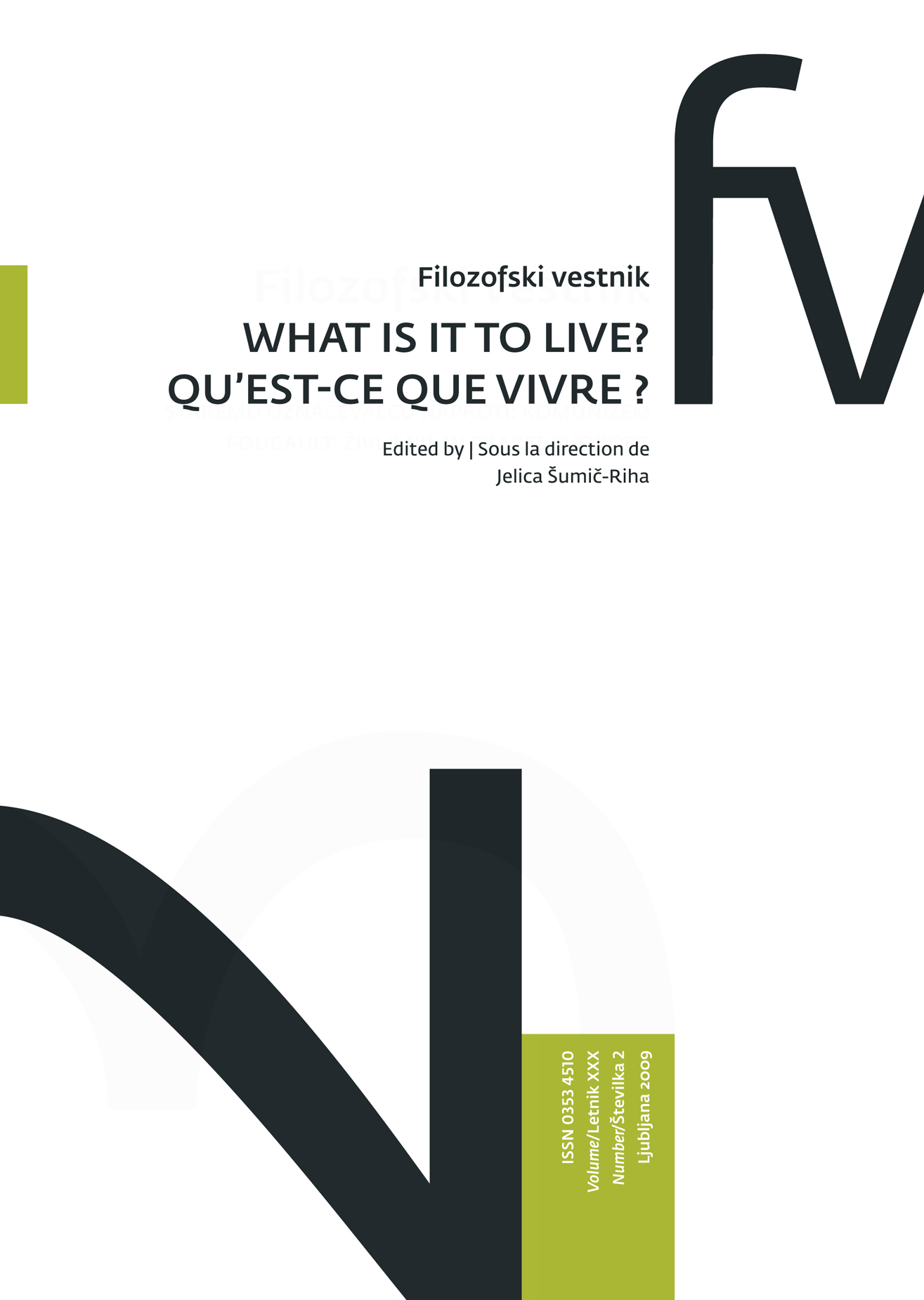From Hamartia to “Nothingness”: Tragedy, Comedy and Luther’s “Humilitas”
Povzetek
Within the broader horizon of asking about the relevance of the Reformation, or more particularly, Martin Luther’s thought, this paper first draws on the old debate whether there can be a Christian conception of tragic guilt by reconstructing an argument Giorgio Agamben develops against von Fritz’s denial of this possibility. The paper shows that Agamben makes a similar move as Protestantism by claiming that natura, which is always already spoiled by hamartia (original sin), is objective, naturaliter not personaliter. But in doing so, he does not draw the proper consequences. He tries to re-inscribe this realization into a post-Thomist anthropology, thus not drawing the most radical conclusions necessary from the objectification of hamartia as natura, namely that natura is always already lacking and is itself in a sense an object as lack. This paper shows how this consequences is, on the contrary, developed in Martin Luther’s notion that the “whole of nature” is corrupted and in the ensuing totus-homo principle. To draw the delineation of the production of this lack, it is useful to draw on the notion of kerygma and its usage in both tragedy (Antigone) and the Pauline New Testament. With it, one can think of a repetition of the constitution of the subject through a “message” or “kerygma” that is heteronomous. What is left in and through this repetition can be viewed as “nothingness”, as is shown in the example of Martin Luther’s translation of the humilitas of Mary as “nothingness”. This product of kerygma is at the same time potentially the cause for another type of subjectivity, a comic subjectivity, yet one which carries the heritage of its tragic constitution with it. As a methodological consequence, this paper suggests that it is not possible to develop proper notions of the subject within contemporary debates without repeating or representing the event of the site of this potentially comic subjectivity within the early thought of Martin Luther.Prenosi
Podatki o prenosih še niso na voljo.
Prenosi
Objavljeno
2010-06-09
Kako citirati
Ensslin, F. (2010). From Hamartia to “Nothingness”: Tragedy, Comedy and Luther’s “Humilitas”. Filozofski Vestnik, 30(2). Pridobljeno od https://ojs.zrc-sazu.si/filozofski-vestnik/article/view/3209
Številka
Rubrike
Life Between Creation and Duration
Licenca
Avtorji jamčijo, da je delo njihova avtorska stvaritev, da v njem niso kršene avtorske pravice tretjih oseb ali kake druge pravice. V primeru zahtevkov tretjih oseb se avtorji zavezujejo, da bodo varovali interese založnika ter da bodo povrnili morebitno škodo.
Podrobneje v rubriki: Prispevki





